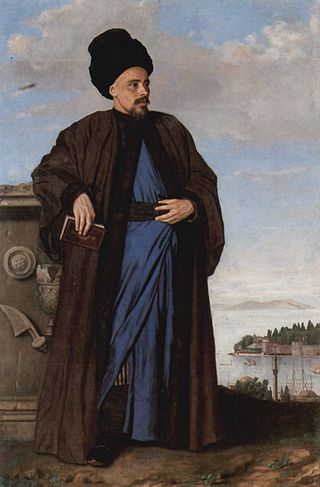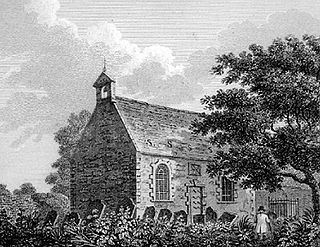
Warren Hastings was a British colonial administrator, who served as the first Governor of the Presidency of Fort William (Bengal), the head of the Supreme Council of Bengal, and so the first Governor-General of Bengal in 1772–1785. He and Robert Clive are credited with laying the foundation of the British Empire in India. He was an energetic organizer and reformer. In 1779–1784 he led forces of the East India Company against a coalition of native states and the French. In the end, the well-organized British side held its own, while France lost influence in India. In 1787, he was accused of corruption and impeached, but he was eventually acquitted in 1795 after a long trial. He was made a Privy Councillor in 1814.

Charles Burney was an English music historian, composer and musician. He was the father of the writers Frances Burney and Sarah Burney, of the explorer James Burney, and of Charles Burney, a classicist and book donor to the British Museum. He was a close friend and supporter of Joseph Haydn and other composers.
This article contains information about the literary events and publications of 1772.
This article contains information about the literary events and publications of 1785.

Joseph Ames was an English bibliographer and antiquary. He purportedly wrote an account of printing in England from 1471 to 1600 entitled Typographical Antiquities (1749). It is uncertain whether he was by occupation a ship's chandler, a pattern-maker, a plane iron maker or an ironmonger. Though never educated beyond grammar school, he prospered in trade and amassed valuable collections of rare books and antiquities.

The Gentleman's Magazine was a monthly magazine founded in London, England, by Edward Cave in January 1731. It ran uninterrupted for almost 200 years, until 1922. It was the first to use the term magazine for a periodical. Samuel Johnson's first regular employment as a writer was with The Gentleman's Magazine.

Francis Grose was an English antiquary, draughtsman, and lexicographer. He produced A Classical Dictionary of the Vulgar Tongue (1785) and A Provincial Glossary, with a Collection of Local Proverbs, and Popular Superstitions (1787).

Thomas Coryat was an English traveller and writer of the late Elizabethan and early Jacobean age. He is principally remembered for two volumes of writings he left regarding his travels, often on foot, through Europe and parts of Asia. He is often credited with introducing the table fork to England, with "Furcifer" becoming one of his nicknames. His description of how the Italians shielded themselves from the sun resulted in the word "umbrella" being introduced into English.

Kanhoji Angre, also known as Conajee Angria or Sarkhel Angré was a chief of the Maratha Navy in present-day India. Kanhoji became known for attacking and capturing European merchant ships and collecting jakat, seen by Europeans traders and colonists as ransoming of their crews. British, Dutch and Portuguese ships often fell victims to these raids.Despite attempts by the Portuguese and British to put an end to his privateering activities, Angre continued to capture and collect jakat from European merchant ships until his death in 1729. Kanhojikoli 's naval prowess in capturing dozens of European trading ships and avoiding capture has led to many historians to appraise Kanhoji as the most skilled Indian navy chief in the maritime history of India.

Richard Pococke was an English-born churchman, inveterate traveller and travel writer. He was the Bishop of Ossory (1756–65) and Meath (1765), both dioceses of the Church of Ireland. However, he is best known for his travel writings and diaries.
Nationality words link to articles with information on the nation's poetry or literature.
Events from the year 1684 in England.
Events from the year 1723 in Great Britain.
John Debrett was an English publisher and compiler. His name has become associated with reference books.
Henry Gregory (1744–1782) was an English mathematical and optical instrument maker. Gregory was apprenticed to John Fowler in 1732 and was himself in business from c. 1750–1792 from premises in Francis Court, Clerkenwell, London and an establishment known as "The Azimuth Compass" in Leadenhall Street, London. His company later became known as Gregory and Son.

Drumcondra Church of Ireland is a Church of Ireland church located in Drumcondra, Dublin, previously in the Civil Parish of Clonturk. The church and its churchyard contain memorials to a number of notable historical figures.

Richard Barwell was an early trader with the East India Company and amassed one of the largest fortunes in early British India.
Temple Stanyan (1675–1752) was an English civil servant, politician and author. He is most known for his Grecian History, first published in 1707, which became a standard work on the history of ancient Greece in the early part of the 18th century.

Nathaniel Middleton (1750–1807) was a civil servant of the British East India Company, closely involved with Warren Hastings and his dealings with the Nawab of Awadh during the 1770s, and later a principal witness at Hastings's trial.










